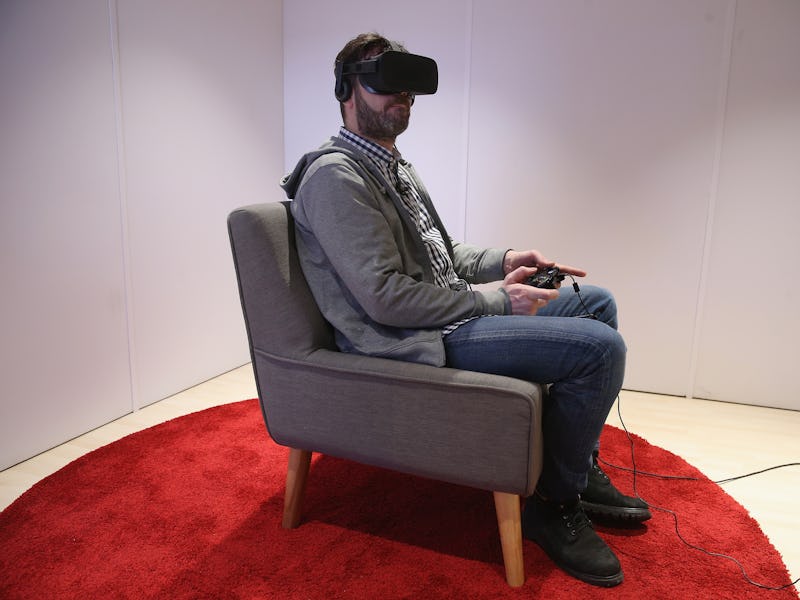Would Virtual Reality Defense Work for Murder?
If you legitimately don't know what's real, you CAN get away with murder.

Let’s say it’s the future. Let’s say you’re still a fan of Grand Theft Auto as the franchise marches into double-digit sequels, and now you’re playing them on the hyperrealistic successor to the Oculus Rift and the HTC Vive. Let’s say you’ve just killed someone. Let’s say they don’t respawn. Let’s say you mistook reality for a game.
Could you argue that the murder you committed wasn’t murder but an accident, a case of mistaken reality? And if you committed the crime while believing you were still in virtual reality, would the “I-thought-it-was-VR” defense work?
In a court of law, you can more or less argue whatever you want. That doesn’t mean the argument will be any good. In 2009, a 300-pound Florida man accused of killing a man in New Jersey claimed he was too fat to make the drive from the Sunshine to the Garden State. He was convicted. The trick isn’t if the defense narrative exists, but whether or not it plays with the judge and the jury. A VR approach, as implausible as it seems, might eventually pan out for a defendant.
A few quick caveats: Disbarred Florida lawyer Jack Thompson, who tried to hold the makers of GTAII accountable for IRL violence, was being an idiot. Slaughtering pixels in VR doesn’t mean you’re primed to terminate the mailman. We just want to know what might happen if you couldn’t tell the difference between VR and reality, and something really awful resulted.
As virtual reality operates today, mistaking VR for reality is not a defensible position for the cognitively sound. The Oculus Rift might make journalists weep with ludotechnical joy in Las Vegas demo halls, but nobody puts a headset and incepts him- or herself into a DiCaprian limbo. Rather, the VR defense in 2016 looks the Matrix defense in 2003: A path pursued only by those who might in fact have a mental illness.
Twelve years ago, when people were still talking about The Matrix: Reloaded, there was a brief trend of Wachowski-infused insanity defenses. A San Franciscan named Vadim Mieseges, reports CNN, mutilated his landlady because he believed he’d been “sucked into The Matrix.” Mieseges’ argument was a success. If you legitimately don’t know what’s real, you can get away with murder — at a price.
The insanity defense is an oft-misunderstood legal play. It’s neither as common nor as successful as public perception would allow. Accused parties attempt the insanity defense fewer than one trial out of a hundred, according to a review of criminal cases across eight states in the early 1990s. Of these, reported The Washington Post, a fourth succeed. And “success,” in the case of an insanity plea, frequently means institutionalization.
But that’s the now. If VR were to become so lifelike that the idea of confusing the unreal isn’t delusional, even these examples go to shit. Perhaps the frame of reference would have to shift away from videogames and early-aughts sci-fi blockbusters to something like dreams. Even in dream territory, proving intent will remain critical.
And should you demonstrate your realities truly have blurred? A Swedish man was acquitted of rape in 2014, after all, once he was diagnosed with sexomnia; that is, performing sex acts while asleep. Would such a defense work in the U.S.? When virtual reality become dream machines proper, could a killer walk away with a lesser degree of murder or manslaughter?
If the goggles fit — well, you know the rest.